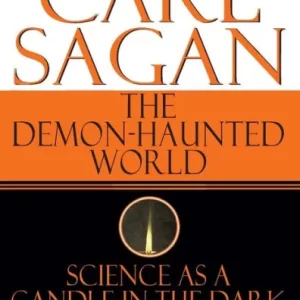Introduction to the Author:
Carl Sagan, an astronomer, astrophysicist, cosmologist, and science communicator, was one of the most influential figures in popularizing science in the 20th century. Born on November 9, 1934, in Brooklyn, New York, Sagan’s contributions to the scientific community and his efforts to educate the public about the wonders of the universe are unparalleled. He played a pivotal role in various space exploration missions and authored numerous books, including “Cosmos,” which remains one of his most celebrated works. Published in 1980, “Cosmos” became a bestseller and inspired millions around the world with its exploration of the universe and our place within it.
Summary of “Cosmos”:
“Cosmos” is not just a book; it is a journey through space, time, and humanity’s quest for understanding. In this seminal work, Carl Sagan takes readers on an extraordinary voyage across the cosmos, weaving together science, history, philosophy, and mythology to explore the mysteries of the universe.
The book is divided into thirteen chapters, each delving into different aspects of the cosmos, from the origins of the universe to the evolution of life on Earth and the prospects for extraterrestrial intelligence. Sagan’s prose is both poetic and profound, inviting readers to ponder the deepest questions about existence and our place in the grand tapestry of the cosmos.
In the opening chapters, Sagan lays the groundwork for his exploration by discussing the vastness of the universe and the scale of time. He introduces readers to the cosmic calendar, a metaphorical device that compresses the entire history of the universe into a single year, highlighting humanity’s relatively brief existence in cosmic terms.
Throughout the book, Sagan emphasizes the interconnectedness of all life on Earth and the importance of preserving our planet for future generations. He discusses the origins of life, the evolution of species, and the delicate balance of ecosystems, warning of the dangers of environmental degradation and the need for responsible stewardship of our planet.
One of the most captivating aspects of “Cosmos” is Sagan’s exploration of the possibility of extraterrestrial life. He examines the conditions necessary for life to arise on other planets and speculates about the potential diversity of life forms that may exist beyond Earth. Sagan’s optimism and sense of wonder shine through as he contemplates the vastness of the cosmos and the possibility of encountering other intelligent civilizations.
In addition to his scientific insights, Sagan also delves into the history of astronomy and the contributions of ancient civilizations to our understanding of the cosmos. He pays tribute to the visionary thinkers who dared to challenge conventional wisdom and expand the boundaries of human knowledge, from the ancient Greeks to the Renaissance astronomers who revolutionized our understanding of the universe.
Throughout “Cosmos,” Sagan encourages readers to approach the world with curiosity, skepticism, and a sense of awe. He reminds us of the importance of critical thinking and scientific inquiry in an age of misinformation and superstition, urging us to embrace the spirit of exploration and discovery that has driven humanity’s quest for knowledge throughout history.
As the book draws to a close, Sagan reflects on the fragility of life and the impermanence of civilizations, yet he remains hopeful about humanity’s potential to overcome its challenges and reach for the stars. He offers a vision of a future where humanity works together to explore the cosmos and unlock its secrets, transcending the limitations of our individual perspectives to embrace a broader understanding of our place in the universe.
In the final chapter, Sagan reflects on the cosmic perspective—a profound awareness of our place in the universe and our interconnectedness with all life on Earth. He challenges readers to embrace this perspective and to confront the challenges that lie ahead with courage, humility, and a sense of wonder.
Conclusion:
“Cosmos” is more than just a book about science; it is a testament to the human spirit and our enduring quest for knowledge and understanding. Through his eloquent prose and boundless curiosity, Carl Sagan invites readers to embark on a journey of exploration and discovery, challenging us to confront the mysteries of the universe and to embrace the wonder of existence. As we ponder our place in the cosmos, Sagan’s words serve as a reminder of the beauty and complexity of the universe and the infinite possibilities that lie beyond the stars.


